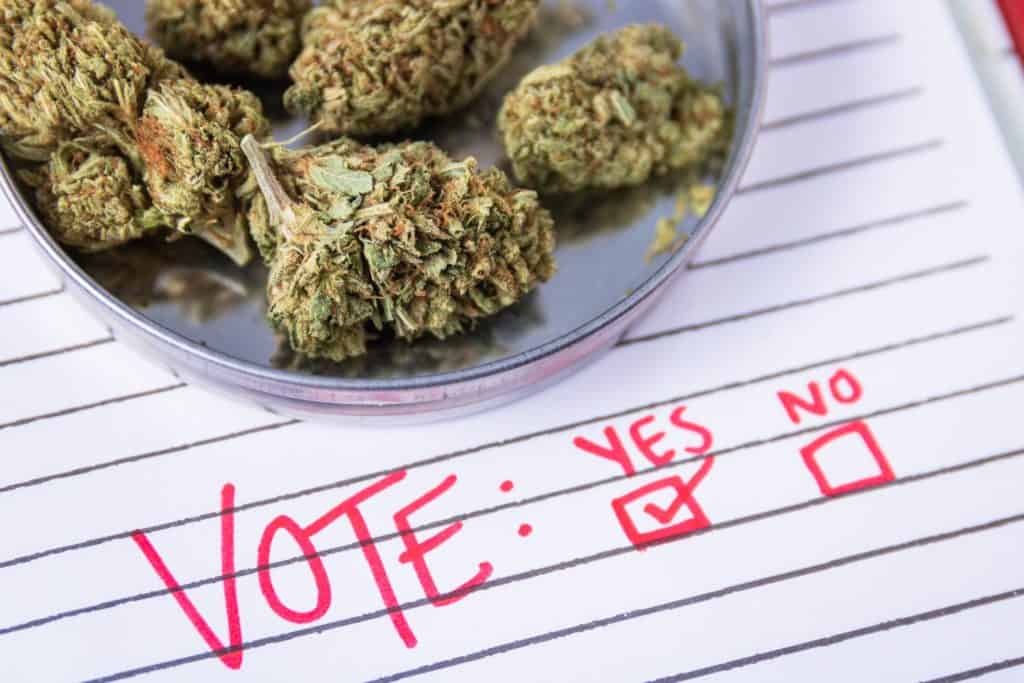
By Dan Murphy
Polling on the legalization of marijuana in New York State, which was passed by the State legislature and signed into law by Governor Andrew Cuomo in April 2021, has consistently found between 60%-65% of Westchester residents in favor of legalization, while 30%-35% are opposed, based on Siena College polling over the past year.
Two members of Westchester State delegation voted against legalization. Assemblywoman Sandy Galef and Assemblyman Kevin Byrne. Galef said, on the floor of the Assembly on the day of the vote, “I have thought about this day for many years and many Assembly sessions and tried to do as much research as I continued to study the issue. And I have heard the Majority Leader’s passion.
“However, the question I always came back to was- does legalizing marijuana (I am not speaking of medical marijuana which I supported) but how does legalizing marijuana help the health and well-being of New Yorkers?
“So I met with my constituents – many of them who had lost family members to overdoses and considered marijuana as the gateway drug in those instances, I attended town meetings to learn from the experts in the field, I interviewed doctors who cared for young adults or children in the emergency rooms of hospitals who were medically impacted by marijuana, I heard from law enforcement about the issues of driving while under the influence of drugs, I heard from representatives of other states, from the school community, the substance abuse community groups… and nowhere did I get a positive answer to my main and driving question – how does legalizing marijuana help the health and well-being of New Yorkers.
“I also thought about all the legislation we have passed over the years to curtail the usage of tobacco products – by prohibiting flavored cigarettes, expanding no smoking zones, and trying to deal with the expanded use of vaping (especially with our youth in our schools) as well as limiting vaping shops in our communities. We continue to address and strengthen DWI laws and even Boating while intoxicated laws– year after year in the Assembly.
“After years of examination of the issue and deciding what direction I would go with my single vote… I thought of my original question. Would legalizing marijuana make the health and well-being of New Yorkers better?
“So, I will be voting no on the bill before us today,” said Galef.
Assemblyman Kevin Byrne wrote the following on April 1, after the vote. “Throughout my time in the Assembly, I have consistently embraced opportunities to lift burdensome restrictions on medicinal marijuana, but have also contended it should remain a controlled substance. We know there can be medicinal benefits from cannabis, but its use should be a decision made between a patient and their doctor, nurse practitioner or physician assistant.
“Like many in the medical community, including the Medical Society of the State of New York, I have also consistently opposed efforts to legalize marijuana for recreational use and voted against the Marihuana Regulation & Taxation Act (MRTA).
“That said, understanding over the last several years that legalization was likely to pass, I made myself available to listen to colleagues and advocates to try and help ensure guard rails were put in place to better protect public health and safety should legalization eventually occur.
“Unfortunately, it is my determination that many of the guard rails our state needed to safeguard public health and safety were absent in the MRTA. Arguments highlighting years of social injustice were largely addressed years ago when the state repealed many of the Rockefeller Drug Laws and more recently with last year’s decriminalization bill. As it stands, last year’s decriminalization bill, which may have been very well-intentioned, already went too far when it eliminated the additional violations that were previously enforceable against a person who smoked cannabis in public spaces. This problem has now only worsened that cannabis has been fully legalized.
“Today, under the MRTA a person can smoke marihuana outside anywhere they can smoke tobacco, including some public parks frequented by our youth. Tobacco and cannabis are inherently different and should be regulated as such. I have written to the sponsor of the MRTA advocating again for reforms that would better enable local governments to regulate and restrict cannabis use in public spaces.
“While legalization will most assuredly bring in some new tax revenue, we know it will also increase costs that affect our state and local budgets as well as put the health and well-being of our families at greater risk. To me, whatever fiscal benefit may exist from the MRTA is simply not worth the price tag,” wrote Byrne.
In addition to Galef and Byrne, the New York State PTA opposed legalization. “With the serious crisis of youth vaping and tobacco use, and in the midst of the COVID-19 pandemic which affects the lungs, while still battling the opioid crisis, this harmful legislation is counterintuitive. Especially now,” the email states.”Tell Albany they need to heed the recommendations from leading medical and public health organizations, education groups, and the law enforcement community and OPPOSE the legalization of recreational marijuana.”
Democrats support legalization by a 65%-35% margin, while republicans oppose legalization by the same 65%-35% margine. Some Westchester communites are considering whether they want to “opt-out” of allowing the sale of Marijuana in their communities. Some local officials have told us that their communities are seriuously considering not allowing the sale of pot anywhere, but are not willing to come out publicly and state it.
“I think that our town doesn’t want to allow the sale of marijuana, but we are not going to come out and say that right now because the sale of marijuana will not happen until late next year or even 2023, and we don’t want rallies and protests in our town for two years,” said one Westchester elected official.
A bill for legalization, and removing marijuana from the Federal classified list of prohibited drugs, is now before Congress.





